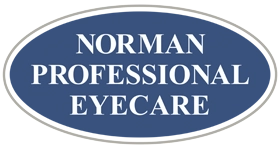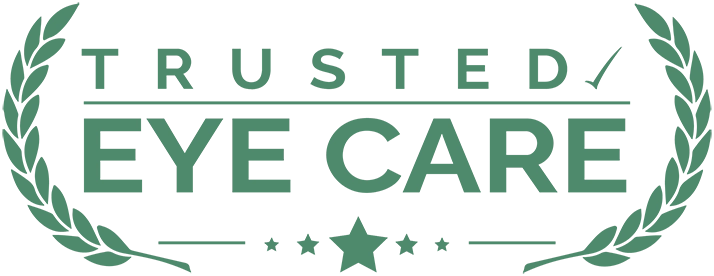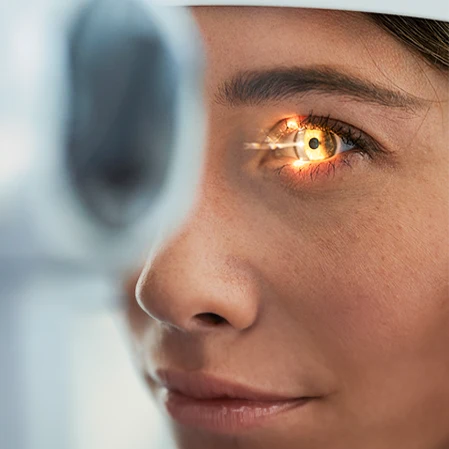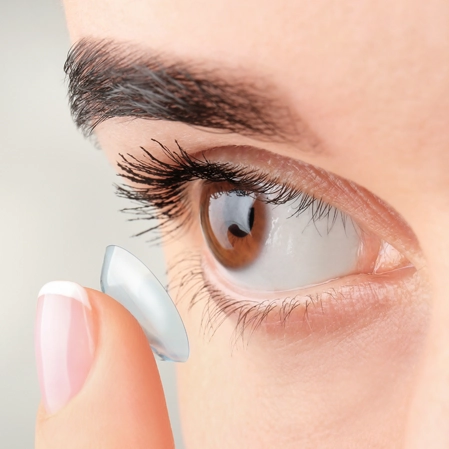Clear Vision
Healthy Eyes, Better Life
Why Choose Norman Professional Eyecare?
Vision care is personalized to meet the unique needs of each individual. Whether you need glasses, contact lenses, or treatment for an eye condition, a comprehensive eye care plan is tailored to your specific requirements. By prioritizing vision care, you ensure that your eyes remain healthy and your vision stays clear, supporting you in all aspects of life.
Eye Doctor Cape Girardeau MO
Welcome to Norman Professional Eyecare, which is located in Cape Girardeau MO. We offer comprehensive eye care services to enhance vision and promote eye health. The top-rated Dr. Brian Norman O.D., has years of experience in providing safe, effective, and personalized eye care to patients in Cape Girardeau and surrounding areas. We want to be your Cape Girardeau MO eye doctor.
We invite you to visit our optometry office for a range of services, to achieve and maintain optimal vision and eye health.
The Importance of Vision Care
You may not currently experience any vision problems, but regular vision care is still essential for maintaining optimal eye health. Many serious eye conditions, such as glaucoma, diabetic retinopathy, and macular degeneration, can develop without noticeable symptoms in their early stages. Regular eye exams can detect these conditions early, allowing for timely intervention and preventing potential vision loss. Additionally, eye exams can reveal signs of systemic health issues like diabetes and high blood pressure. By prioritizing routine vision care, you ensure that any underlying issues are identified and managed before they impact your vision and overall health.
Financing Available
Get the care you want or need and pay over time. Use the CareCredit credit card, with flexible financing, to pay for your health and wellness needs.

Understanding Optometry
The History of Eye Care
The history of eye care dates back thousands of years, with ancient civilizations making significant contributions to our understanding of vision and eye health. In ancient Egypt, around 1550 BC, the Ebers Papyrus documented various treatments for eye diseases, highlighting the early recognition of the importance of eye care. The Greeks and Romans also made notable advancements, with renowned figures like Hippocrates and Galen studying and writing about ocular anatomy and conditions. Their work laid the foundation for future medical practices and the development of specialized eye care.
During the Middle Ages, Islamic scholars such as Alhazen (Ibn al-Haytham) made groundbreaking strides in optics and vision science. Alhazen's Book of Optics, written in the 11th century, challenged earlier Greek theories of vision and introduced new concepts about how light and the eye interact. The Renaissance period saw further advancements, particularly with the invention of spectacles in the late 13th century, which revolutionized the way people corrected their vision. These historical milestones collectively contributed to the evolution of modern ophthalmology and optometry, leading to the sophisticated eye care practices we benefit from today.

Fill our the form below to Contact Us
Please fill out the form below and someone from our team will be in contact!
What Kind of Training Does an Optometrist Have?
Optometrists undergo extensive training to become experts in eye health and vision care. Their education begins with a bachelor's degree, typically in a science-related field, followed by enrollment in a four-year optometry program at an accredited optometry school. During these four years, optometry students study various subjects, including optics, visual science, anatomy, physiology, and pathology of the eye. They also receive hands-on clinical training, where they learn to diagnose and manage a wide range of eye conditions, prescribe corrective lenses, and provide vision therapy.
In addition to their formal education, optometrists must pass a series of rigorous exams to obtain their license to practice. This includes the National Board of Examiners in Optometry (NBEO) exams, which test their knowledge and clinical skills. Some optometrists choose to further specialize in areas such as pediatric optometry, geriatric optometry, or ocular disease through residency programs, which provide an additional one to two years of focused training. Continuous education is a crucial part of their career, as they must stay updated with the latest advancements in eye care and treatment techniques to provide the best possible care for their patients.





